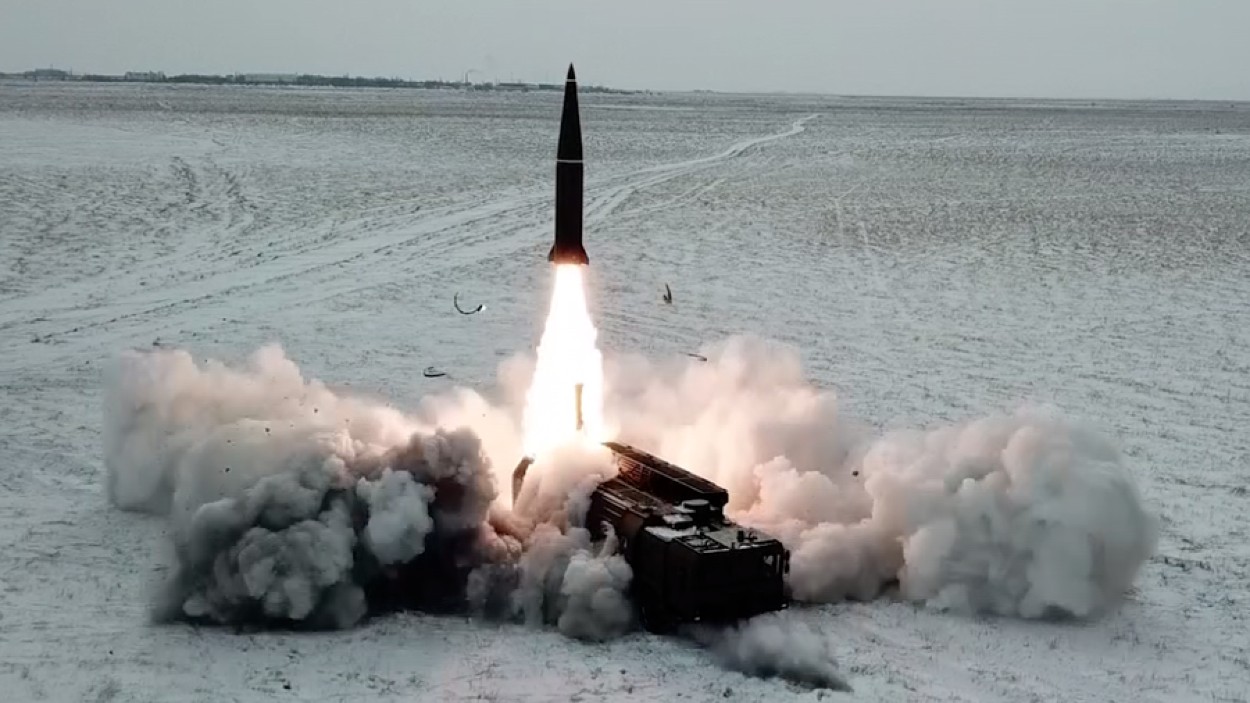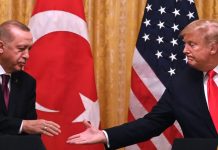As Russia gears up to reinforce its newly created Leningrad military district along the Finnish border, the President of the Republic of Poland, Andrzej Sebastian Duda, indicated that his country is ready to host nuclear weapons if NATO decides to reinforce its eastern flank amid tensions with Moscow.
Speaking at an interview with Polish publication Fakt, Duda said, “Russia is increasingly militarizing the Königsberg oblast (Kaliningrad). Recently, it has been relocating its nuclear weapons to Belarus.”
“If our allies decide to deploy nuclear weapons as part of nuclear sharing on our territory as well, to strengthen the security of NATO’s eastern flank, we are ready for it,” he added.
Duda said Poland has been in talks with the United States over “nuclear sharing” for a while without providing specific details about their discussions.
The announcement comes after the Polish President visited the United States and met former President, Donald Trump, who is all set to contest the election again. He spoke fondly of Trump and said the two of them had many things to discuss in common.
Duda’s comments about hosting nuclear weapons have been attributed to Russia’s purported nuclear saber-rattling. Sources in the Russian Ministry of Defense (MoD) recently told local media that the Kremlin was reinforcing the newly formed Leningrad military district with a unit of Iskander-M nuclear-capable ballistic missiles.
⚡️The President of 🇵🇱Poland, Andrzej Duda, announced his readiness to deploy nuclear weapons on the country's territory.
"If our allies decide to deploy nuclear weapons as part of the joint use of nuclear weapons also on our territory to strengthen the security of NATO's eastern… pic.twitter.com/w6YZAFkivY
— 🇺🇦Ukrainian Front (@front_ukrainian) April 22, 2024
Earlier this year, Russian President Vladimir Putin signed a decree re-establishing the Leningrad military district integrating the Republic of Karelia, the Republic of Komi, the Arkhangelsk, Vologda, Kaliningrad, Leningrad, Murmansk, Novgorod, and Pskov Regions, the city of St. Petersburg and the Yamalo-Nenets Autonomous Region.
The Leningrad district was established in response to NATO’s expansion with the admission of Finland and Sweden into the anti-Russia alliance. Russian Defense Minister Sergei Shoigu said, “Due to the build-up of NATO’s military potential near the Russian borders, the expansion of the alliance through the accession of Finland and, in the future, Sweden, we have taken steps to strengthen the groupings of troops in the northwestern and western strategic directions.”
Long before the idea to deploy Iskander-M tactical nuclear weapons to Leningrad was floated, Russia announced that it would host nuclear weapons in Belarus. Belarusian President Alexander Lukashenko announced in December last year that the shipment of weapons to his country was complete.
At that time, Lukashenko said that his country was hosting nuclear weapons to ward off the threat of an invasion by Poland, which shares a border with Ukraine and has played a key role in providing military assistance to Ukraine in the ongoing war. Belarus is the sole Russian ally in the region and borders both Ukraine and Poland.
⚡️🇧🇾Lukashenko said all the rowdy neighbors were quickly quietened when Russia gave Belarus nukes: pic.twitter.com/0N2ePSIee5
— SIMPLICIUS Ѱ (@simpatico771) January 20, 2024
This might explain Poland’s willingness to host nuclear weapons. “I have already talked about this several times. I must admit that when asked about it, I declared our readiness,” President Duda said. “Russia is increasingly militarising Kaliningrad. Recently, it has been relocating its nuclear weapons to Belarus,” he added.
While most NATO countries don’t have nuclear weapons of their own, NATO’s ‘Nuclear Sharing’ doctrine enables members without nukes of their own to take part in NATO’s nuclear deployment. For instance, Belgium, Germany, Italy, and the Netherlands have access to the B61 family weapons provided by the United States.
The NATO Nuclear Sharing arrangement could likely be extended to include Poland if the alliance decided to create deterrence along its northeastern flank. However, Washington has yet to comment on Duda’s remarks and no such move appears to be on the cards.
Leningrad Military District to host nukes
Russia has repeatedly expressed concern that Finland’s accession to NATO would mean that NATO troops and sophisticated weapon systems would be deployed across the border, threatening Russian security. Finland has not refuted any of these possibilities and has instead taken steps to enhance NATO’s presence on its soil.
This has been understood as the rationale behind the Kremlin’s decision to deploy the Iskander-M missiles in the Leningrad military district, which lies close to the NATO border.
As per sources, Karelia has established a distinct missile brigade equipped with Iskander-M missile systems. The district also received the transfer of the 14th Army Corps in the Murmansk region and the 11th Army Corps in the Kaliningrad region. Karelia is located along the border with Finland.
“The formation of a missile brigade is a very timely decision. This is an adequate response to Finland’s accession to NATO,” the former commander of the Baltic Fleet, Admiral Vladimir Valuev, told Izvestia. He indicated that the missile brigade would rise to the occasion in case of a threat posed by NATO troops and carry out relevant operations. The missile brigade is expected to strengthen the flank, he emphasized.

The core of Russia’s modern precision strike capacity is the mobile short-range ballistic missile system, 9K720 Iskander-M, which can carry conventional and nuclear warheads weighing up to 1,500 pounds. The missile has a range of more than 400 kilometers and travels at a speed of Mach 7 while performing maneuvers that evade the adversary’s missile defense systems.
Speaking on the significance of the deployment of nukes to the region, Military analyst Dmitry Boltenkov told Izvestia that “Iskanders” did quite well during a special military operation, so the Finns should be aware that such “joy” can fly to them as well.
Tactical nuclear weapons, which are meant for use in combat situations, are designed with a shorter range and a lower yield in comparison to the long-range missiles equipped with far more potent nuclear warheads.
These tactical weapons are, nonetheless, enough to wreak havoc on the target. Russia is not likely to use these weapons against a NATO state, but its nuclear posturing over the months has put the US-led security bloc on its toes.
- Contact the author at sakshi.tiwari9555(at)gmail.com
- Follow EurAsian Times on Google News




